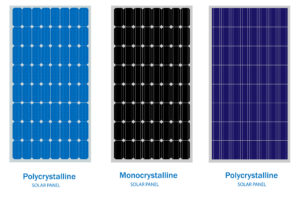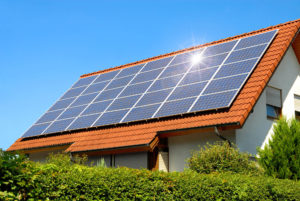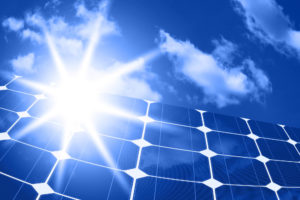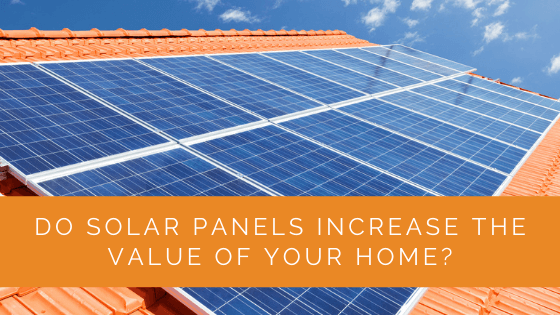You must’ve visited properties and felt overwhelmed by their costs. With the popularity of solar panels, there’s a high chance that solar panels contributed to the property’s soaring rate.
Do you want to enhance the ultimate value of your home? Well, one of the surefire ways to do that is to install solar panels. In recent years, solar panel-equipped roofs have become must-haves for a conscientious homeowner.
Both estate agents and homeowners might be curious to know the value of a solar-powered home. Do you wish to know which type of solar panel can increase the value of your home?
Worry not, as this article delves deep into the most-asked questions. Hopefully, by the end of it, you’ll be able to decide if your home needs a solar panel system or not!
Contents
- 1 Key Takeaways
- 2 What Are the Different Solar Panel System Types?
- 3 What Are the Different Solar Panel System Options?
- 4 How Much Does a Solar Panel System Cost?
- 5 How Much Will You Save?
- 6 How Will Solar Panels Boost the Value of Your Home?
- 7 What Factors Influence a Solar Panel’s Added Value?
- 8 Which States Have the Highest Solar Premiums?
- 9 What is the Future of Green Homebuying?
- 10 Can Solar Panels Lead to Home Value Depreciation?
- 11 Case Study: Enhancing Home Value with Solar Panel Installation
- 12 Expert Insights From Our Solar Panel Installers About Increasing Home Value with Solar Panels
- 13 Experience Solar Excellence with Us!
- 14 Key Takeaways
Key Takeaways
- Solar panels can increase the value of your home by making it more attractive to buyers looking for energy efficiency and cost savings.
- Factors such as the type, quality, lifespan, and local demand for solar panels can influence the extent of the value increase.
- While solar panels generally enhance property value, their impact can vary, and in some cases, factors like maintenance or aesthetic preferences might affect their influence on home value.
What Are the Different Solar Panel System Types?
You’ll typically find two varieties of solar panel systems in the market – silicon solar panels and thin-film solar panels. Silicon panels occur in two forms, namely, polycrystalline panels and monocrystalline panels.
Both monocrystalline and polycrystalline panels work in the same way. Monocrystalline panels have been one of the oldest solar panel types. However, polycrystalline solar panels are much more popular.
The silicon solar panels also boast a high efficiency. Their efficiency ranges from 18% to 22%.
On the other hand, thin-film solar panels are more common sights on solar tiles and solar shingles. They are less expensive than silicon solar panels and lack efficiency.
The efficiency of these panels is only about 11% to 13%. Also, the thin-film solar panels might not be able to meet the total power requirements of your home.
What Are the Different Solar Panel System Options?
If you are planning to install solar panel systems in your house, you have two options.
One option would be to connect your system to a local utility grid. Here, you’ll be able to sell the excess energy your panels are generating.
Alternatively, you can choose to install an off-grid system. This option stands alone, and a series of batteries accompanies the system. There’s also a backup generator that will store power for your home in overcast weather or at nighttime.

Grid-Connected Systems
Grid-connected systems are the least expensive and most common as they do not have costly requirements. Plus, the maintenance of grid-connected systems is easier.
The Department of Energy explains that a grid system allows powering a home with renewable energy when the sun is up. The system feeds any excess energy it produces back into the grid.
The grid systems do not require electricity storage devices such as batteries and generators. The elimination of unnecessary equipment cuts down the cost significantly.
Off-Grid Systems
Unlike the grid-connected systems, the off-grid systems stand alone and do not have any connection to grids.
Off-grid systems are a sensible choice for houses located in remote spots. In such locations, installing a stand-alone system is cheaper than running a power line. In addition to the panels, the off-grid systems also include other equipment.
Other equipment includes a charge controller, power-conditioning equipment, batteries, instrumentation, meters, and safety devices.
How Much Does a Solar Panel System Cost?
The Department of Energy claims that the solar industry in the U.S. is witnessing tremendous growth in recent years. Owing to this, the overall cost of solar panel systems has dropped and is becoming more affordable.
Though the prices are reducing, the ultimate cost of your solar panels will depend on various factors. For starters, the location and size of the panels affect the price. You’ll also be content to know some states offer incentives and rebates on solar panels.
Tax Credits
The tax credit information for homeowners with solar energy systems has been updated significantly since the previous years. According to the latest guidelines, the Residential Clean Energy Credit equals 30% of your home’s costs of new, qualified clean energy property if installed anytime from 2022 through 2032. The credit percentage rate will then phase down to 26 percent for properties placed in service in 2033 and 22 percent for properties placed in service in 2034. This tax credit is nonrefundable, which means it can’t exceed the amount you owe in tax, but you can carry forward any excess unused credit to reduce tax in future years. This credit has no annual or lifetime dollar limit except for certain limits on fuel cell property.
Remember, to claim this credit, your solar system must be new or being used for the first time and should be installed between January 1, 2017, and December 31, 2034. You must own the solar system outright, and it should be located at your primary or secondary U.S. residence or for an off-site community solar project. These updates provide a significant incentive for homeowners considering solar energy installations, offering substantial savings on installation costs while promoting using renewable energy sources.
Maintenance
The good news is that solar panels do not have an intensive maintenance requirement. Aside from occasional cleaning, you don’t have to spend a dime on them. You can clean the solar panels on an as-needed basis.
The price of cleaning a solar panel generally runs between $1500 to $330. Regularly maintaining and cleaning the panels is mandatory to avail of the warranty.

How Much Will You Save?
You already know that the cost of a solar panel system will vary. Similarly, your savings on these solar panels will also differ depending on local electricity prices.
For example, in a city where the local electricity rates run at $0.12 per kilowatt-hour, the solar panel system might be able to save around $500. In easier words, the higher the rate of energy, the more your savings will be.
The average annual savings with solar panels largely depends on your location.
How Will Solar Panels Boost the Value of Your Home?
Savvy homeowners will know what their solar-powered home values in the real estate market. Let’s see what benefits does solar panels bring to a homeowner:
- Solar panel systems will help you sell your home faster
- The panels will also add a higher resale value to your home
- Prospective buyers for solar-powered homes are growing
The fact that solar panels can increase the value of your home shouldn’t be so surprising. You might have installed those panels for the sole reason of saving utility bills. Likewise, your prospective buyers might find the same value in solar panels.
Energy is becoming more and more expensive day by day. In such a situation, everyone is looking for ways to save on energy bills. The Energy Performance Certificate (EPS) makes energy efficiency a key aspect for many buyers.
Considering all these reasons, the higher value of solar-powered homes is a no-brainer. Having solar panels installed in your home will attract more buyers.
Buyers view an installed solar panel as an upgrade. Homebuyers across the world are ready to pay a higher amount for environmental and economic benefits. They anticipate that solar panels will pay for the initial investment.
What Factors Influence a Solar Panel’s Added Value?
The added property value from solar panel systems varies based on different factors. The additional value of a home can vary based on the following:
- Local cost of electricity
- Understanding of solar technology and merits in the locality
- Region or location of the property
- Solar installation prices
- System replacement value
- State incentives, if any
- Amount of energy production
- Age of solar panel system
- Frequency and duration of power outages
- Local environmentally conscious community
Which States Have the Highest Solar Premiums?
Here are the top ten states with the highest solar panel system value for homes:
- New Jersey
- Pennsylvania
- North Carolina
- Louisiana
- Washington
- Florida
- Hawaii
- Maryland
- New York
- South Carolina
What is the Future of Green Homebuying?
The Appraisal Institute claims that energy-efficient and green home improvements can have extra dividends to sellers and buyers.
Extra insulation and energy-efficient appliances are one of the most valued features in real estate. Green features like solar panels can push the value of your home by a staggering 2.19%.
Besides homeowners and buyers, the local state government also incentivizes homeowners to create energy efficiency and renewable energy awareness.
As a result of the growing demand for renewable energy-powered homes, green buying is all set to become the upcoming real estate trend.

Can Solar Panels Lead to Home Value Depreciation?
We hate to break it to you, but in some cases, that can happen. Despite the significant investment in solar panels, your home can end up valuing much less. Here’s how solar panels can be responsible for the reduced value of your home:
- Maintenance: The new owner might feel that maintaining the solar panels is a hassle.
- Eyesore: Not everyone likes the metallic and angular looks of solar panels. For some people, solar panels are an unsightly subject on the roof.
- Additional Complications: If the potential homeowner wants to build an extension or redo the roof, the panels will impose financial and physical limitations.
- Rental Properties: The buyer might not find the solar panels helpful if they won’t be staying in the house.
- Feed-in Tariff: If the new owner doesn’t enjoy this remuneration, getting a mortgage might be next to impossible.
In the end, the age of your solar panels will be a prime determiner. If your solar panels are approaching the end of their lifespan, the new owner might have to spend on replacing or de-installing them.
Who receives the ‘Feed-in tariff’ is another factor that matters.
A feed-in tariff is an incentive for homeowners that sell the unused energy back to the grid. To reduce the burden of installation costs, many homeowners let installers enjoy this income.
Case Study: Enhancing Home Value with Solar Panel Installation
Background
At Solar Panels Network USA, our mission is to deliver sustainable energy solutions that not only benefit the environment but also increase the value of our clients’ homes. This case study outlines a recent project where we installed a solar panel system to boost a residential property’s market value.
Project Overview
Our client, a homeowner in a suburban neighborhood, aimed to increase their property’s value and reduce energy costs by installing a solar panel system. The objective was to leverage the benefits of solar technology to make the home more appealing to potential buyers.
Implementation
We began with a comprehensive site assessment to determine the most efficient placement for the solar panels. Key factors such as roof orientation, shading, and local climate conditions were analyzed to optimize sunlight capture.
The chosen solution was a 6kW monocrystalline solar panel system known for its high efficiency and durability. The system included state-of-the-art inverters and a battery storage unit to ensure a reliable power supply.
Financial and Regulatory Incentives
The project was financially viable due to various incentives:
- Federal Tax Credit: The homeowner benefited from a 30% federal tax credit, significantly reducing the initial cost.
- State Incentives: State rebates and performance-based incentives provided additional savings, enhancing the return on investment.
- Net Metering: Excess energy produced by the system was credited back to the homeowner, reducing monthly utility bills and providing a steady income stream.
Results
Upon completion, the solar panel system immediately began generating substantial energy savings. The homeowner reported an average reduction of 25% in their electricity bills. Additionally, the property’s market value increased by approximately 4%, as confirmed by a professional appraisal.
The high-efficiency system ensured maximum energy production, even during less sunny periods, thanks to the integrated battery storage. This reliability further appealed to potential buyers who viewed the solar panels as a valuable upgrade.
Summary
This case study illustrates how Solar Panels Network USA successfully enhanced the value of a residential property through strategic solar panel installation. By leveraging state and federal incentives, we provided a cost-effective and environmentally friendly solution that not only reduced energy costs but also increased the property’s market appeal. Our commitment to quality and customer satisfaction continues to drive our efforts in making sustainable energy accessible to all homeowners.
Expert Insights From Our Solar Panel Installers About Increasing Home Value with Solar Panels
Installing solar panels significantly enhances your home’s value, especially in markets where energy efficiency is a high priority for buyers. The investment in solar technology not only reduces utility bills but also appeals to eco-conscious buyers.
Senior Solar Panel Installer
One of the key benefits of solar panels is their ability to make a home more attractive to potential buyers. The reduction in energy costs combined with state and federal incentives makes solar-equipped homes a premium choice in the real estate market.
Lead Solar Engineer
The efficiency and quality of solar panels are critical factors that influence their impact on home value. High-efficiency panels like monocrystalline types offer greater energy production and longevity, adding more value to your property.
Chief Installation Officer
Experience Solar Excellence with Us!
Trust in Solar Panels Network USA, where our seasoned experts deliver top-quality solar solutions for homes and businesses nationwide. With a legacy of countless successful installations and a commitment to sustainable energy, we’re your reliable partner in the solar journey. Ready for a brighter, eco-friendly future? Call us now at (855) 427-0058 and harness the power of the sun!
Key Takeaways
There are both pros and cons to having solar panels on your property. One of the potential impacts of having solar panels is an increased resale value. Your property’s value will depend on several features of the solar panels.
So, before you wrongfully assume the new and updated value of your solar-powered home, get your facts right!
Factors like the lifespan of solar panels, warranty, type, quality, lease affect the overall value. In our opinion, solar panels are a worthwhile investment that won’t depreciate the value of your home.
The demand for renewable energy in your location also plays a critical role. There is a good chance that solar-powered homes sell off quickly and at a higher rate!
About the Author
Solar Panels Network USA stands at the forefront of solar energy solutions, driven by a team of seasoned solar engineers and energy consultants. With over decades of experience in delivering high-quality solar installations and maintenance, we are committed to promoting sustainable energy through customer-centric, tailored solutions. Our articles reflect this commitment, crafted collaboratively by experts to provide accurate, up-to-date insights into solar technology, ensuring our readers are well-informed and empowered in their solar energy decisions.

